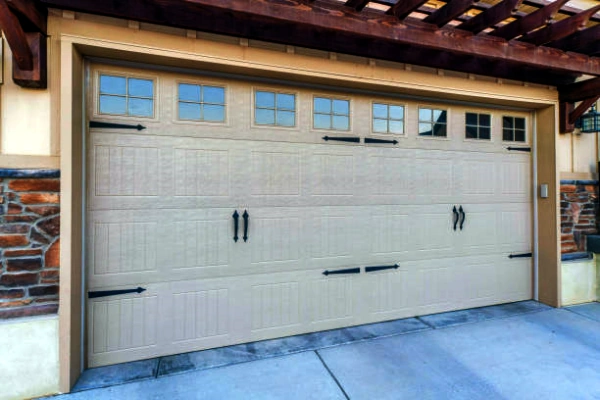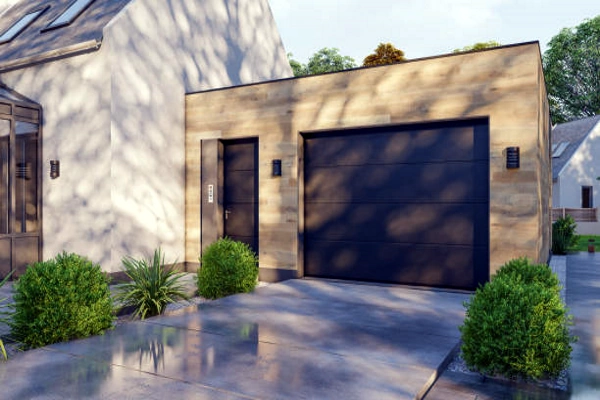Are you undergoing a major home improvement project in your residence, perhaps even replacing or upgrading your garage door? A sizzling topic of conversation that could transform the aesthetics and functionality of your home is understanding residential garage door specifications. Dive into this informative blog post to unravel the essential details about widths, heights, materials, insulation ratings, and much more. Armed with the right knowledge, you’ll be able to make an informed, smart decision for your property while ensuring flawless operation and enhanced curb appeal. Let’s reveal the crucial elements of garage door specifications you need to know before committing to that game-changing home transformation!
Sizing Your Residential Garage Door
When it comes to selecting a residential garage door, ensuring the right size is crucial. A properly sized door not only enhances the aesthetics of your home but also provides convenience and functionality. So, how do you determine the correct size for your residential garage door?
The first step is to measure the width and height of your garage opening. It’s important to note that standard garage doors usually come in widths ranging from 8 to 18 feet, while their height can vary between 7 and 8 feet. However, these are just general guidelines, and customized sizes are available to fit specific needs.
Consider an example where your garage opening measures 9 feet in width and 7 feet in height. In this case, you would typically look for a door with dimensions closest to these specifications.
Additionally, other factors need attention when sizing your residential garage door. For instance, if you plan to use the garage for more than just parking vehicles, such as storage or as a workshop space, you may need extra clearance or higher ceilings.
Once you have determined the appropriate size, it’s time to move on to understanding the specifics of door height and width.
Garage Door Height and Width
The height and width of your garage door play a vital role in its functionality and accessibility. So, what should you know about door height and width?
The standard height of a residential garage door is typically 7 feet. However, if you own a larger vehicle like an SUV or a van, consider opting for a door height of 8 feet or more to allow comfortable entry and exit.
Similarly, the width of your garage door should be wide enough to accommodate the vehicles you own or plan to purchase in the future. Measure the widest part of your vehicle and ensure that the door width is at least a few inches wider for easy maneuvering.
By understanding the dimensions and specifications related to residential garage doors, you can make an informed decision that best suits your needs and enhances the functionality of your home.
Garage Door Materials
When it comes to selecting the appropriate residential garage door materials, there are several factors to consider. The material you choose will impact not only the aesthetics of your home but also the durability and maintenance requirements of the door. Let’s explore some popular options: steel, wood, and composite.
Choosing Between Steel, Wood, and Composite
Steel garage doors offer a combination of strength, durability, and affordability. They are available in a variety of styles and finishes, making them a versatile choice for any home. Steel doors also require minimal maintenance, as they are resistant to warping, rotting, and cracking. However, keep in mind that steel may dent or show signs of wear over time.
Wooden garage doors exude natural beauty and charm. They can be customized to match the architectural style of your home and offer a warm and inviting look. Additionally, wood is an excellent insulator, helping to regulate the temperature inside the garage. However, wooden doors require regular maintenance, such as staining or painting, to protect against weather damage and prevent rotting or warping.
Composite garage doors combine the benefits of both steel and wood. These doors are made from a combination of materials like wood fibers and resin, offering the appearance of wood without its maintenance demands. Composite doors are durable, resistant to dents and corrosion, and often come with warranties for added peace of mind.
Ultimately, your choice of garage door material should reflect your personal preferences regarding aesthetics, budget considerations, and required maintenance efforts. It’s important to weigh these factors carefully before making a decision.

Essential Garage Door Features
When considering a residential garage door, it’s important to understand the essential features that contribute to its functionality and durability. One of the key aspects is the material used for the door construction, which can range from steel, aluminum, wood, or composite materials. Each material has its own benefits and considerations based on factors like aesthetics, insulation properties, and durability.
Another crucial feature is the design of the garage door. Different styles are available, such as traditional raised panel doors, carriage-style doors with decorative hardware, or modern contemporary designs like the Avante collection. The design not only enhances the curb appeal but also complements your home’s architecture and personal style.
The insulation of a garage door is another aspect to consider. Insulated doors provide better temperature regulation inside the garage and can help reduce energy costs by preventing heat or cold transfer. This becomes especially important if you have a living space above or adjacent to the garage.
For instance, imagine having an insulated garage door during extreme winter conditions. It not only helps keep your car protected but also acts as an additional barrier against cold air infiltration into your home.
Security and Energy Efficiency Considerations
Think of your garage door as a portal to both convenience and safety—an entry point that requires careful consideration when it comes to security and energy efficiency.
Security is paramount when choosing a garage door. Look for models with robust locking mechanisms, such as rolling code technology, which ensures that each time you open or close your door, it generates a new access code that helps prevent unauthorized entry. Reinforced panels and tamper-resistant bottom brackets can add an extra layer of security.
Insulated doors play a significant role in keeping the temperature inside your garage stable, which can have a positive impact on the overall energy efficiency of your home. Proper insulation helps minimize heat transfer and reduces the strain on your HVAC system. Look for doors with high R-value ratings, indicating their insulating properties.
When it comes to energy efficiency, you might also consider weather sealing. Weather seals around the door’s perimeter help prevent drafts, dust, and pests from entering your garage. This tight seal contributes to better temperature control and energy conservation.
Final Words
Powell Garage Doors stands as your go-to source when it comes to residential garage door specifications. Boasting unsurpassed quality and an unwavering commitment to unmatched service, Powell Garage Doors turns seemingly complex solutions into tailored ones tailored specifically for your home. At Powell Garage Doors, we take great pride in crafting each detail of our residential garage doors with meticulous care, ensuring not just functionality but seamless integration into your home’s aesthetic as well. Trust Powell Garage Doors to seamlessly navigate the specification landscape while meeting and surpassing your expectations; contact us now for excellence that exceeds every requirement!




0 Comments